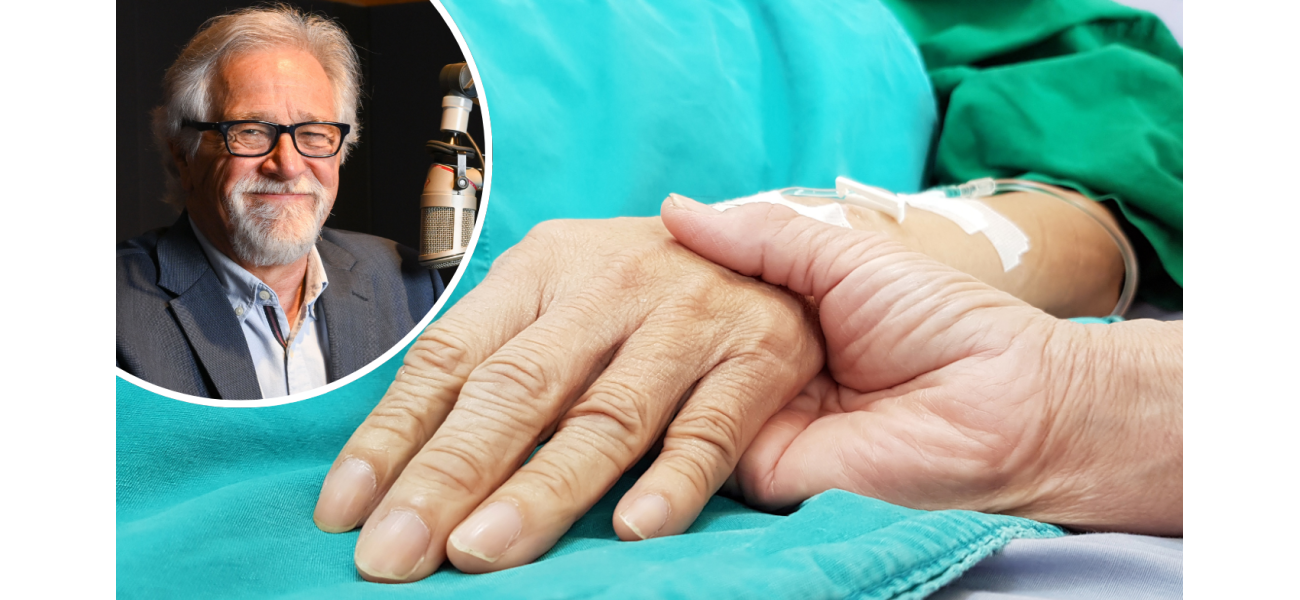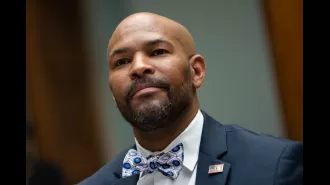Should Australia permit people with dementia to use voluntary euthanasia?
Philosopher calls for Australia to legalize euthanasia for dementia patients.
December 10th 2024.

A renowned philosopher is advocating for a change in Australia's laws to allow individuals with dementia to have access to voluntary euthanasia. According to the philosopher, assisted dying should be legal as long as the person has requested it while they were still intellectually capable. He also believes that the current legislation's refusal to permit this is a weakness. In a podcast interview, Neil Mitchell asks the philosopher for his reasoning behind this belief.
Professor Peter Singer, who is well-known for his advocacy for animal rights, also raises the possibility of using brain-dead individuals for medical experimentation. He also reiterates his belief that parents should have the right to end the life of their seriously disabled child. Mitchell asks Singer about his thoughts on the recent decision by the Canadian province of Quebec to allow euthanasia for dementia patients through "advance request for medical aid in dying."
Dementia is a pressing issue in Australia, affecting over two million lives including caregivers and families. It is currently the second leading cause of death in the country and is estimated to affect one person every three seconds worldwide. Singer points out that while individuals with dementia can express their wishes in advance, the underlying principle of existing laws is that a person can change their mind at any time. However, with dementia, a person may not be able to understand or communicate this decision, which raises ethical concerns.
Singer's personal connection to this issue, his mother's death from dementia, fuels his support for voluntary euthanasia. He acknowledges the complexity of the dilemma but also sees it as a weakness in current legislation. He believes that individuals should have the right to make decisions about their own death, especially when they are aware and thoughtful.
The Canadian system requires patients to outline, while they are still competent, at what stage they would find their condition intolerable. One or two trusted individuals then have the responsibility of advising doctors that the patient is ready to die, even if they are no longer able to express their wishes. Dementia Australia's CEO, Professor Tanya Buchanan, states that there are different opinions on voluntary assisted dying among people with dementia, their families, and caregivers. As an advocacy organization, Dementia Australia neither supports nor rejects the concept, but instead advocates for choice and empowerment for individuals to make decisions about their own life and death.
In his new book, Animal Liberation Now, which is a sequel to a book he wrote 50 years ago, Singer discusses controversial ideas such as using brain-dead individuals for medical experimentation and euthanizing severely disabled babies. He defends his stance on euthanasia for severely disabled children and cites the Netherlands as an example of a country that allows it. He also raises the question of whether brain-dead individuals could be used for medical experimentation and even expresses his willingness to be used in such a way, as long as there is prior consent.
Singer's argument for using brain-dead individuals for experimentation is based on the belief that humans are more intelligent and rational than animals. He poses the question of whether a human being who is profoundly intellectually disabled and less intelligent than a dog or monkey would be considered for experimentation. He believes that the answer should be no, as it goes against the argument that humans are more intelligent and rational than animals. Mitchell, who is a Nine news analyst, regularly hosts podcast interviews and editorials on current issues, and his discussions with Singer are just a few examples of the thought-provoking and controversial topics that are covered.
Professor Peter Singer, who is well-known for his advocacy for animal rights, also raises the possibility of using brain-dead individuals for medical experimentation. He also reiterates his belief that parents should have the right to end the life of their seriously disabled child. Mitchell asks Singer about his thoughts on the recent decision by the Canadian province of Quebec to allow euthanasia for dementia patients through "advance request for medical aid in dying."
Dementia is a pressing issue in Australia, affecting over two million lives including caregivers and families. It is currently the second leading cause of death in the country and is estimated to affect one person every three seconds worldwide. Singer points out that while individuals with dementia can express their wishes in advance, the underlying principle of existing laws is that a person can change their mind at any time. However, with dementia, a person may not be able to understand or communicate this decision, which raises ethical concerns.
Singer's personal connection to this issue, his mother's death from dementia, fuels his support for voluntary euthanasia. He acknowledges the complexity of the dilemma but also sees it as a weakness in current legislation. He believes that individuals should have the right to make decisions about their own death, especially when they are aware and thoughtful.
The Canadian system requires patients to outline, while they are still competent, at what stage they would find their condition intolerable. One or two trusted individuals then have the responsibility of advising doctors that the patient is ready to die, even if they are no longer able to express their wishes. Dementia Australia's CEO, Professor Tanya Buchanan, states that there are different opinions on voluntary assisted dying among people with dementia, their families, and caregivers. As an advocacy organization, Dementia Australia neither supports nor rejects the concept, but instead advocates for choice and empowerment for individuals to make decisions about their own life and death.
In his new book, Animal Liberation Now, which is a sequel to a book he wrote 50 years ago, Singer discusses controversial ideas such as using brain-dead individuals for medical experimentation and euthanizing severely disabled babies. He defends his stance on euthanasia for severely disabled children and cites the Netherlands as an example of a country that allows it. He also raises the question of whether brain-dead individuals could be used for medical experimentation and even expresses his willingness to be used in such a way, as long as there is prior consent.
Singer's argument for using brain-dead individuals for experimentation is based on the belief that humans are more intelligent and rational than animals. He poses the question of whether a human being who is profoundly intellectually disabled and less intelligent than a dog or monkey would be considered for experimentation. He believes that the answer should be no, as it goes against the argument that humans are more intelligent and rational than animals. Mitchell, who is a Nine news analyst, regularly hosts podcast interviews and editorials on current issues, and his discussions with Singer are just a few examples of the thought-provoking and controversial topics that are covered.
[This article has been trending online recently and has been generated with AI. Your feed is customized.]
[Generative AI is experimental.]
0
0
Submit Comment





